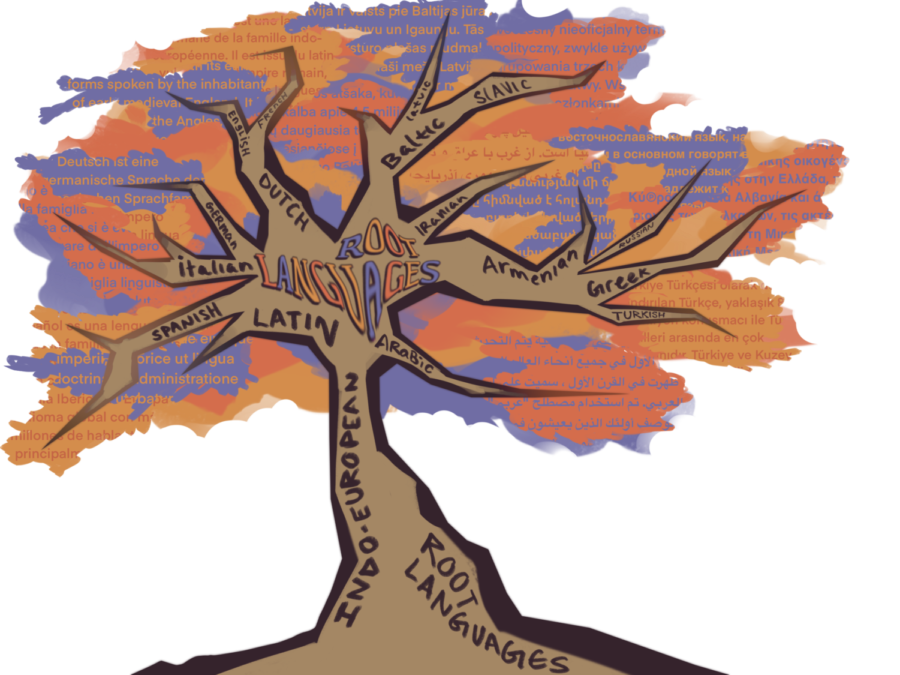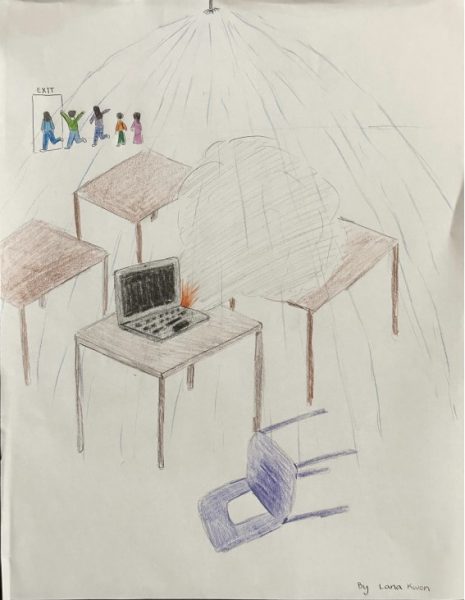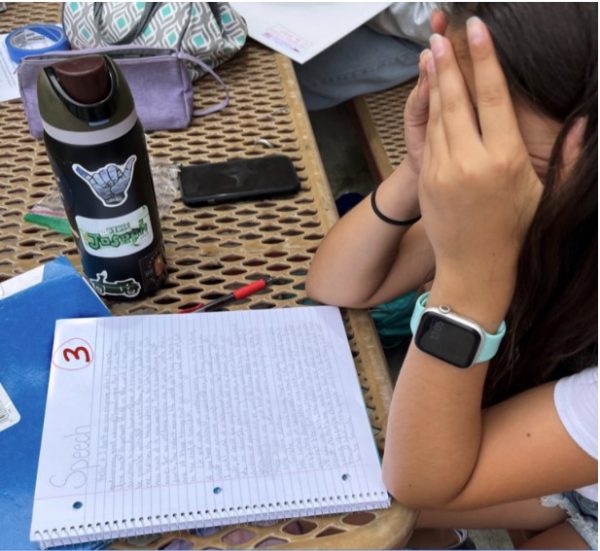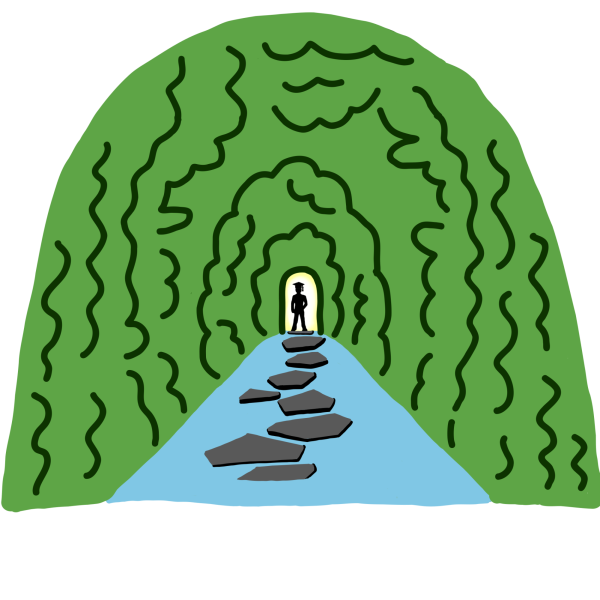Lenguas, Linguae: Woodbridge High Students Should Seek An Enriching Journey to Fluency
Contrary to existing misconceptions, language learning is not something that is very difficult, and instead can be quite fascinating
While learning a new language is meant to help you understand more people, it often seems like the complete opposite at first, full of misunderstandings.
Take Spanish for example: “ser” and “estar” both mean “to be,” but choosing the wrong one changes the whole meaning of a sentence. “Estoy aburrido” means “I am feeling bored,” but “soy aburrido” means “I am boring.”
However, misunderstandings are a normal part of the language learning process and students should not be afraid to make mistakes.
“Nobody ever would make fun of you because you said something wrong,” Spanish teacher Nichole LaPeer said. “They just want to help you get your message across.”
In fact, misunderstandings may even occur within the same language. American and British citizens frequently use different words for the same object. Did you know that an “eraser” in the United States is a “rubber” in Great Britain?
Besides, learning a new language may not be as hard as one thinks. Trilingual junior Layla Kavandi-Kurato, a native speaker of Japanese, Farsi and English, challenges people’s belief that Farsi is really hard.
“The grammar is really easy [and] it’s an easy language to learn,” Kavandi-Kurato said.
“I don’t think any language is hard necessarily. I think that the problem is that it’s different or that maybe the way that it’s presented sometimes in textbooks can make it look really hard,” LaPeer said.
For beginners, the early stages of learning a language can be quite tedious, involving a lot of memorization. However, there are ways to make it fun.
After finding brute memorization wasn’t working well for her students, LaPeer switched to comprehensible input, where she gave students interesting information in the language, either in the form of short stories or acting things out in Spanish.
More advanced learners, however, may get discouraged when plateauing at one level, generally right before fluency. To surpass this, speaking with native speakers in the target language and completely immersing oneself in the language is the best solution, especially since it exposes one to local dialects, slang and idioms that are not taught in textbooks.
Overall, learning a new language is not something that is extremely hard, it just requires a certain amount of commitment and consistency. According to ilanguages.org, 43% of the world is bilingual, which is more than the 40% that only speak one language. In fact, 13% of people, about 1.014 billion, are trilingual. Practicing regularly, even if only 15 minutes a day, can create a good schedule to stay motivated and eventually reach fluency.
Another way to maintain motivation is to identify a clear reason why you are learning the language. Keeping this goal in mind, and creating smaller ones along the way can help you stay on track. Additionally, learning one language can uncover more than one culture, which is very enriching.
“A lot of people think [Arabic is] one language, but it’s really not,” junior Mira Ikladious said. Ikladious is fluent in Arabic and French, but she speaks Egyptian Arabic. Syrians, on the other hand, would speak a different dialect and have their own unique cultural traditions.
Moreover, some languages, though no longer spoken, can help one better understand their own native tongue, despite the thousands of years separating them.
“People don’t want to learn Latin because they think it’s a dead language,” sophomore Emily Karpe said.
Latin, however, has helped her with other languages, particularly English which has Latin roots. The English word “audible,” for instance, is derived from the Latin verb “audīre,” meaning to hear.
All in all, it is worth taking the risk to learn a new language.
“Even if you think that you sound dumb, the person that’s listening to you is just so happy that you’re trying,” LaPeer said.
While daunting challenges can arise in the language learning process, it is very rewarding in the end.
Language learning can be fun. Learning songs in the language or watching TV shows are both very helpful, and there is a lot of inspiration online from various polyglots, or people who speak four or more languages.
Who knows? Maybe someone from Woodbridge High will be the next Timothy Doner, the world’s youngest hyperpolyglot, speaking 23 languages. Could it be you?
Your donation will support the student journalists of Woodbridge High School. Your contribution will allow us to purchase equipment and cover our annual website hosting costs.
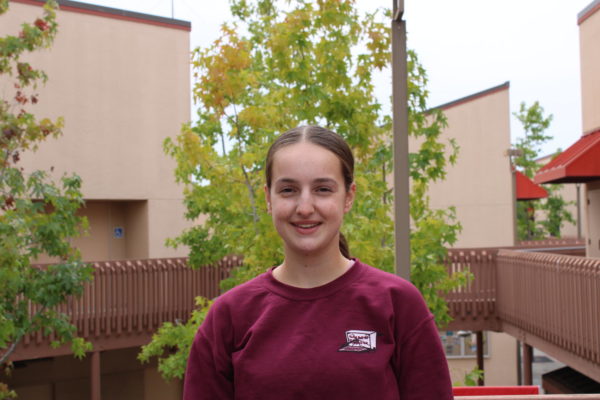
Hello! My name is Camille Roussel and this is my second year in journalism. I am so excited to be Visual Director this year. I hope to improve my photography...
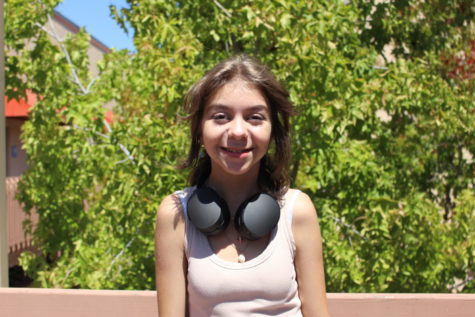
Hey Warriors! I'm Sidra Daker - a staff member in the Golden Arrow's illustration team for the 2022-23 school year! I'm so excited to be able to use my...



